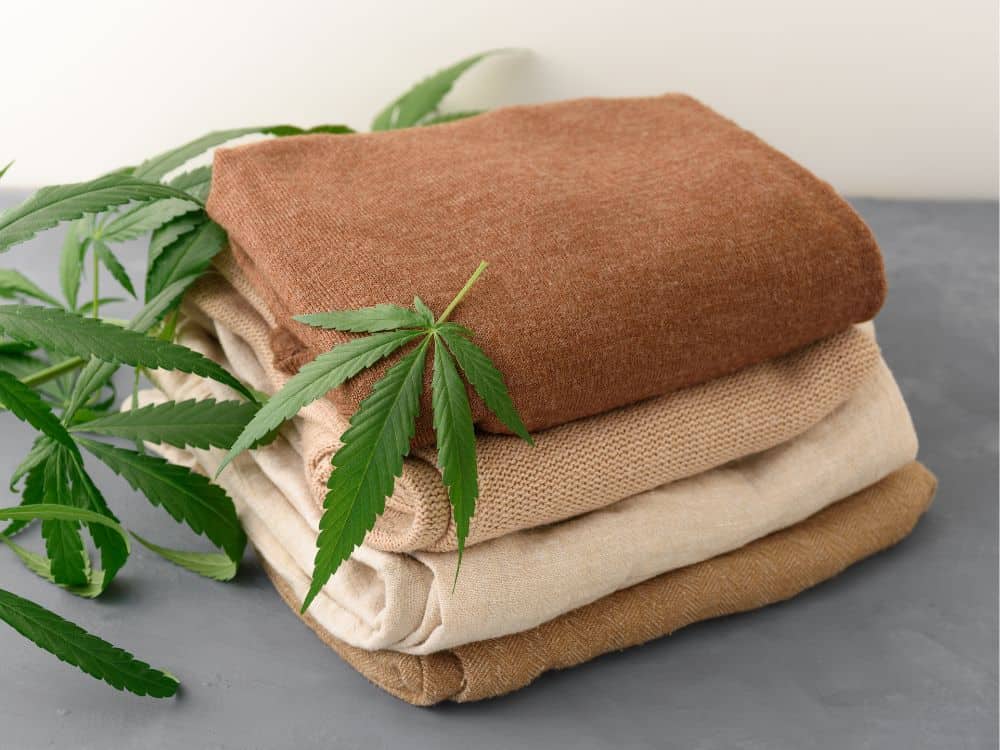Good Facts For Selecting Hemp Clothing
Wiki Article
How Is Hemp A Sustainable Crop In Terms Of Pesticides, Water Use And Herbicides When Compared To Cotton?
There are many reasons hemp is considered a sustainable plant if you compare it to cotton in terms water usage as well as insecticides and herbicides.
Hemp is a water-loving plant. Its needs are minimal compared to other crops, like cotton. It is considered a drought-tolerant plant that can flourish even with only a small amount of irrigation. Hemp is typically grown using rainwater in a variety of locations. It is a water-efficient plant.
Cotton- Traditional textiles are notorious for their water-intensive nature. Cotton farming is often heavily irrigated, which can reduce the water resources of the region and create water shortages. Cotton farming's water-intensive nature has raised questions about its sustainability.
Pesticides, Herbicides
Hemp- Hemp is naturally resistant to many pests and diseases, which reduces the need for synthetic pesticides and herbicides. Although some hemp crops require pest control, in general the dependence on chemical is lower than that of other crops including cotton. Hemp cultivation that is organic can be practically pesticide-free.
Cotton - The traditional cotton farming industry is heavily dependent on synthetic insecticides and herbicides in order to control pests. These chemicals can have negative environmental consequences, such as soil and groundwater contamination, harm to other species, and the development of pesticide-resistant pests.
In conclusion, hemp has been shown to be more sustainable when as compared to cotton. This is because it uses less water, pesticides and weedicides.
Hemp grows well with little water and is often harvested with rainwater or only minimal irrigation.
Hemp is naturally resistant to diseases and pests and reduces the need for pesticides.
Hemp production uses less synthetic pesticides when compared with cotton.
It's important to remember that environmentally-friendly and sustainable practices vary between growers. Additionally, organic farming methods further enhance the sustainability of hemp and cotton, by reducing the usage of synthetic chemicals and promoting the health of the soil. When considering the environmental impacts of clothing and textiles, using organic fibers like cotton or hemp can aid in reducing fashion's ecological footprint. Read the recommended hemp clothes info for blog tips including jeans hemp, patagonia hemp island pants, clothes made from hemp, mens hemp clothing, american made hemp clothing, hemp shirts mens, hemp work pants, 100 hemp shirt, hemp polo shirts, dash hemp clothing and more.

How Is Hemp Clothing Better In Terms Of Function And Technology Than Traditional Fibres.
Hemp clothing has several advantages in terms of performance and technology over traditional fabrics, as well being more eco-friendly. Hemp clothing is an ideal alternative to go green because it's breathable and moisture-wicking.
Hemp fibres are highly permeable. They also help to wick away moisture, making hemp clothing extremely comfortable in all circumstances. They help keep you dry and cool, as well as prevent bacterial growth.
Temperature Regulation-
Hemp clothing has excellent thermoregulating capabilities. It is able to keep you warm in cold temperatures by capturing body heat close and help to remain cool during hot weather when heat and moisture are allowed to go away. This natural regulation of temperature could reduce the necessity to change clothes frequently.
Durability and long-term durability
Hemp fibers are renowned for their durability. The clothing made of hemp is more durable and resistant to wear than clothing composed of other fibers such as cotton. This means that hemp garments are more durable and last for longer. They can also decrease the frequency at which you have to change them out, which has an adverse impact on the environment.
UV Protection
Hemp fibers are an excellent UV protectant, shielding the skin against harmful UV radiation. This benefit is especially useful when doing outdoor sports or activities.
Biodegradability:
Hemp clothes are biodegradable. It will degrade naturally as time passes. The impact on the environment of textiles is diminished by this property, as opposed synthetic fibers that can stay in landfills over long periods of time.
Low Environmental Impact-
Hemp production typically requires lesser synthetic herbicides or pesticides as compared to cotton. It is also environmentally green since it uses less. These eco-friendly characteristics are enhanced through organic hemp farming.
Carbon Sequestration
During their growth, hemp plants can absorb carbon dioxide from the air. In turn, hemp cultivation could act as an carbon sink, which helps to reduce greenhouse gas levels.
Sustainable and crop rotation
Hemp can be integrated into crop rotation strategies, improving the overall health of soils and decreasing the possibility of soil depletion and the buildup of disease. This method of farming that is environmentally friendly is possible because of sustainable farming methods.
Versatility:
Blending hemp fibers with other substances like organic cotton and recycled polyester could make eco-friendly and high-performance fabric blends. This flexibility allows the creation of new and sustainable textile products.
Low Toxicity
Hemp fibers are low in toxicity and don't require a lot of chemical processing during production, which reduces the environmental impact of production of textiles.
It's important to note that while hemp has numerous eco-friendly and functional advantages, the overall sustainability of clothing is contingent on factors like dyeing processes transport, ethical methods of labor. To make eco-conscious choices, consumers can look for clothing brands who prioritize sustainability, transparency and ethical manufacturing practices and hemp, or other sustainable fibers. Read the top the original source about hemp clothing for blog advice including organic hemp hoodie, hemp and cotton fabric, patagonia hemp vest, hemp sportswear, hemp tees wholesale, hemp pants mens, hemp clothing, womens hemp clothing, jeans hemp, hemp coat and more.

What are the main differences between Bamboo and hemp fibers?
Bamboo and hemp are plant-based fibers that are utilized to make textiles. Each has distinctive characteristic and properties. These are the main differences in hemp and bamboo fibers. Plant Source-
Hemp- Hemp fibers are derived from the stalks of the hemp plant, particularly from the outer bast fibers. Hemp is a flexible and rapid-growing plant that has been utilized in a variety of ways over the years.
Bamboo The bamboo fibres are made from the bamboo pulp plants. Bamboo is a fast-growing grass species renowned for its rapid renewal and sustainability.
2. Fiber Characteristics
Hemp- Hemp is known for its strength and durability. They are among the strongest natural fibers and soften with each wash. They are suitable for fabrics that last.
Bamboo fibers can be silky and soft. Although they may not be as durable as hemp fibers, and are more delicate in certain instances however their suppleness on the skin is greatly valued.
3. Texture and Feeling
Hemp- Hemp has a somewhat coarse texture, particularly in its natural form. It can be comfortable however it has a different texture to bamboo.
Bamboo fabric is smooth, silky and luxuriously soft. It is often described as feeling like a mixture of silk and cotton, which makes it extremely comfortable to wear.
4. Breathability (and moisture-wicking)-
Hemp- Hemp fibres are naturally air-tight, wicking moisture and permit air circulation. They absorb moisture and enable air circulation. They are a great way to keep cool during hot weather.
Bamboo fibers also have the ability to wick away moisture and are highly breathable. They are brimming with micro-gaps, which enhance their ability to regulate humidity and temperature, ensuring you are at ease in all conditions.
5. Environmental Impact-
Hemp Hemp is an eco-friendly fiber because of its fast increase in growth, its low water needs, and resistance to pests. These elements make it less necessary to use pesticides or herbicides. It is able to sequester CO2 from the atmosphere while it expands.
Bamboo's sustainable nature is widely known. It is fast growing, requires little water, and doesn't require synthetic pesticides. Some bamboo varieties, like Moso bamboo are very ecological.
6. Processing-
Hemp- Hemp fibers must be extensively processed in order to separate the outer bast fibers from their inner core. The process may involve retting or decortication.
Bamboo The bamboo fibers are extracted using a chemical known as the viscose process. Bamboo pulp is degraded using chemicals. This can be damaging for the environment if not properly handled. However, some bamboo textiles use closed loop systems that reduce chemical waste.
7. Versatility-
Hemp- Hemp is versatile, with many uses including clothing, building materials and textiles, and more.
Bamboo- Bamboo fibres are used predominantly in clothing and textiles however they can be seen in other products such as towels and bedding.
In summary, both hemp and bamboo offer unique qualities and sustainability advantages. The decision between the two is based on the qualities you look for in a cloth and also your preference for the environment. View the top rated bamboo clothes recommendations for blog examples including clothes made from bamboo, clothes made from bamboo fiber, ladies bamboo t shirts, halloween bamboo pajamas, rayon from bamboo fabric, bamboo pants for women, bamboo ladies pants, mens bamboo clothing, bamboo brand jeans, bamboo sun hoody and more.
